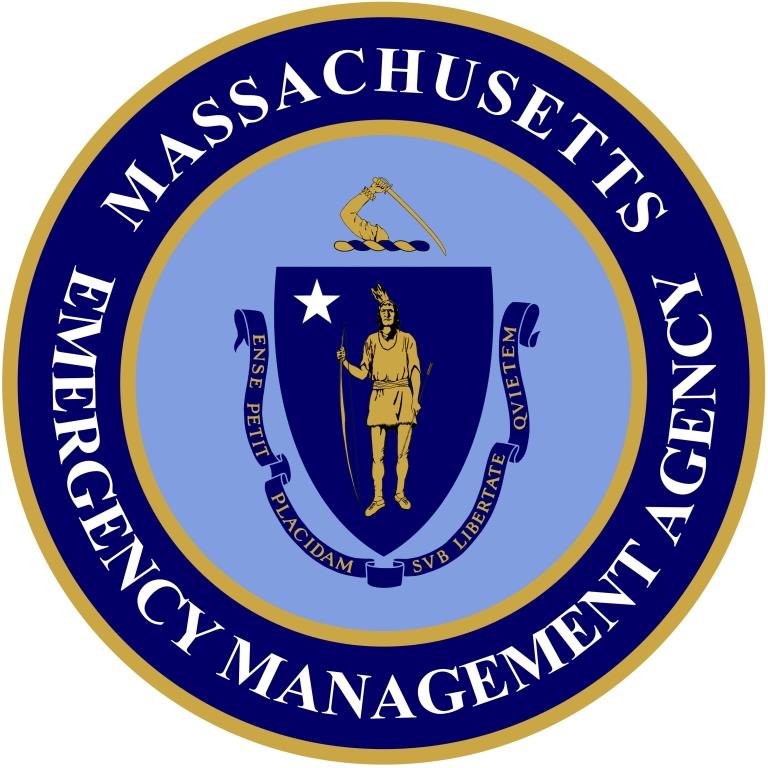- Massachusetts Emergency Management Agency
Media Contact
Justin Shrair, Public Information Officer

Framingham — Governor Maura Healey signed a proclamation declaring the week of July 7 to July 13, 2024, as "Hurricane Preparedness Week," to emphasize the importance of planning and preparing for hurricanes and other tropical systems, which most often impact Massachusetts during the months of August and September.
During the week-long initiative, the Massachusetts Emergency Management Agency (MEMA) will focus on hurricane preparedness messaging and offer informational resources to individuals and municipalities on what can be done before, during, and after a tropical system impacts Massachusetts to protect life and property.
“During Hurricane Preparedness Week, I urge all residents to take stock of their emergency supplies and to plan and prepare ahead of peak hurricane season,” said Governor Healey. “Near-record warm ocean temperatures are expected to fuel more frequent and intense tropical storms, meaning there may be increased likelihood for us in Massachusetts to experience a hurricane.”
Atlantic Hurricane Season runs from June 1 to November 30 each year. This year, National Oceanic and Atmospheric Administration (NOAA) forecasters at the Climate Prediction Center anticipate an above-normal 2024 Atlantic Hurricane Season with 17 to 25 named storms.
“While areas along the coast are more likely to sustain damage from hurricane hazards such as high winds and storm surge, we know from experience that tropical storms can impact areas across the state, both on the coast and inland,” said Lieutenant Governor Kim Driscoll.
“If you live or work within an evacuation zone, now is the time to plan where you would go and how you would get there if a tropical system were to impact Massachusetts,” said Public Safety and Security Secretary Terrence Reidy. “Our state and local emergency management agencies regularly plan and train to respond to hurricanes and other severe weather hazards, and I encourage all residents and visitors in Massachusetts to do the same.”
In advance of peak hurricane season, MEMA developed and published online hurricane safety tips and resources and distributed a multilingual hurricane preparedness toolkit to Emergency Management Directors throughout the Commonwealth to reach all individuals, including underserved and vulnerable populations. MEMA has also partnered with MassDOT and several regional transit authorities to place hurricane preparedness messaging on digital billboards and buses.MEMA continues to address hurricane preparedness, response, and recovery efforts through numerous coordination meetings, trainings and exercises, including annual training for local officials on Hurrevac – an online tool that assists emergency managers with evacuation timing, decision, and technical support.
“We were fortunate last September when Hurricane Lee tracked offshore as it approached Massachusetts, but this once again highlighted the need for us to be prepared,” said MEMA Director Dawn Brantley. “Every household should have an emergency kit and a plan inclusive of all members’ needs and abilities.”
How residents and visitors can prepare:
Know Your Evacuation Zone – Visit www.mass.gov/knowyourzone to learn if you live or work in a hurricane evacuation zone. If you live in an area that may flood and may need assistance evacuating, plan with family, neighbors, and friends who may be able to assist, and contact your local public safety officials to make them aware of your needs.
Make an Emergency Plan – A plan should address how your family would communicate, evacuate, and shelter in place if needed. Be sure to account for the needs of all your family members, including seniors, children, individuals with disabilities, and pets: https://www.mass.gov/info-details/make-a-family-emergency-plan. If you receive medical treatment or home health care services, work with your medical provider to determine how to maintain care and service if you are unable to leave your home or have to evacuate.
Build an Emergency Kit – Build an emergency kit that will sustain your household for three to five days without power. For tips on what to include, visit https://www.mass.gov/info-details/build-an-emergency-kit
Stay Informed – Every family should have multiple methods for receiving emergency alerts and is encouraged to reach out to their local officials for preparedness and emergency information specific to their community, including available local emergency notification systems. The Commonwealth’s 2-1-1 hotline is available 24x7 for non-emergency assistance and is available with translation in more than 150 languages and can be accessed via video relay services. To learn more about additional ways to receive alerts and information, including the Emergency Alert System, Wireless Emergency Alerts, NOAA Weather Radio, and social and traditional news media, visit: www.mass.gov/info-details/be-informed-and-receive-emergency-alerts
MEMA will share preparedness and safety information throughout hurricane season. For more information, including interactive evacuation zone maps, multi-lingual social media toolkits and flyers, preparedness tips, videos, and more, visit MEMA’s Hurricane Season Preparedness webpage.
###
